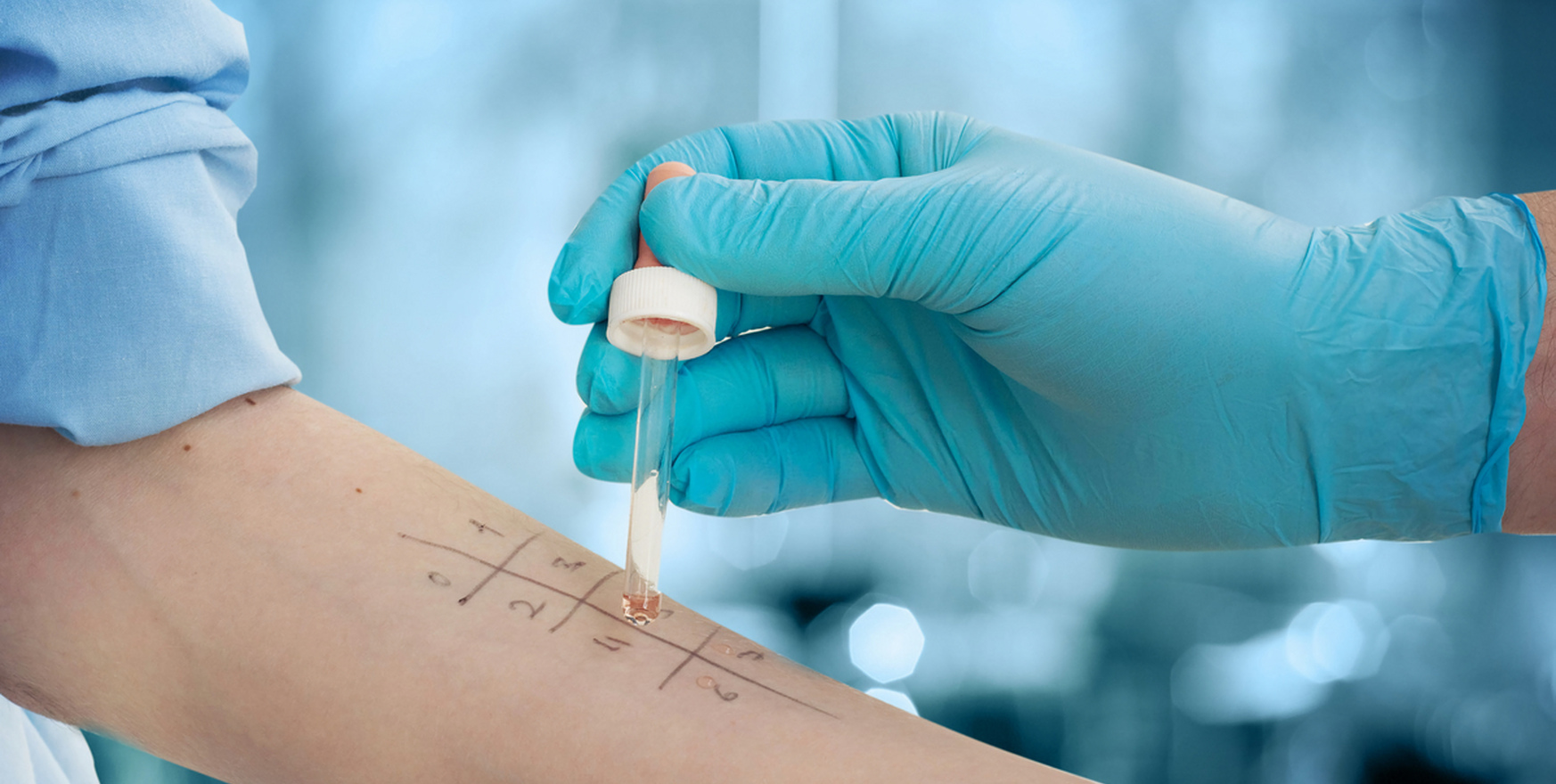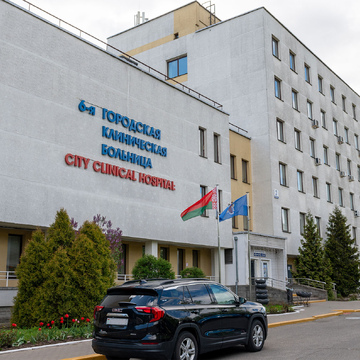
Allergy testing is a diagnostic procedure that allows you to determine what substances a patient may be allergic to. With the help of allergy testing, doctors identify allergens that cause allergic reactions, such as skin rashes, itching, respiratory symptoms, and other manifestations. This examination is relevant for patients with suspected allergic rhinitis, asthma, skin rashes, food allergies, and other allergic conditions.
Types of allergy tests
Several allergen testing methods are used in Belarus:
Skin allergy tests. This is the most common and informative method of allergy diagnostics, which allows you to quickly identify a reaction to various allergens, such as pollen, animal hair, household dust and food products.
There are several types of skin tests:
- Prick test: a drop of allergen is dropped onto the skin, then a small puncture is made so that the substance gets under the skin. The reaction appears after 15-20 minutes.
- Scarification test. Small scratches are made on the skin, to which drops of allergens are also added.
- Intradermal test. The allergen is injected directly under the skin. This method is used to detect sensitivity to medications or weaker allergens.
- Patch tests. These are tests for diagnosing contact allergies. Special patches with allergens are glued to the skin and left for 24-48 hours. The test is used to determine allergies to substances such as metals, cosmetics, chemicals, and latex.
Blood test for specific IgE antibodies
- The patient's blood is tested for the presence of specific IgE antibodies to certain allergens. This method is especially useful for people with severe skin reactions or for children who cannot undergo skin testing. The test can detect sensitivity to a wide range of allergens, including pollen, dust mites, mold, food, and other substances.
Provocative tests
- They are performed under strict medical supervision in a hospital setting, especially if there is a need to accurately confirm a food or drug allergy. The patient is given a small dose of the suspected allergen, and doctors monitor the reaction. This method is used in complex cases when the results of other tests are not accurate enough.
Allergy tests are prescribed by an allergist in the presence of symptoms that may indicate an allergy:
- Chronic runny nose and nasal congestion.
- Frequent sneezing and itchy nose.
- Cough, shortness of breath and asthma attacks.
- Rash, itching, swelling of the skin.
- A food reaction caused by certain foods.
- Allergy to insect bites or medications.
How does the allergy testing procedure work?
The skin allergy testing procedure is safe and is performed in a medical facility. The tests are performed on the forearm or back, where the skin is cleaned and treated with an antiseptic.
- Application of allergens. Small drops of allergens are applied to the skin, after which micro-pricks (prick test) or scratches (scarification test) are made so that the allergen penetrates the upper layer of the skin.
- Reaction assessment. After 15-20 minutes, the doctor assesses the reaction to each allergen. A positive reaction is expressed as redness, swelling or itching at the site of application of the allergen. In a patch test, the results are assessed after 24-48 hours.
- Interpretation of results by a physician.
Contraindications to allergy testing
Allergy tests are not performed in the following cases:
- Exacerbation of chronic diseases or severe allergies.
- Infectious diseases (flu, colds and other infections).
- Pregnancy and breastfeeding (with caution).
- Certain skin conditions make it difficult to interpret skin test results correctly.
- Taking antihistamines and corticosteroids, which can interfere with the results. Your doctor may recommend stopping these medications a few days before testing.
Advantages of allergy testing in Belarus
- Availability in medical institutions.
- High diagnostic accuracy. Allergy tests allow you to accurately determine the causes of allergies and individual patient reactions to certain substances. This helps the doctor choose the optimal treatment and preventive measures.
- Modern equipment and qualified specialists. Highly qualified allergists work in Belarus, and many clinics are equipped with modern laboratories and equipment for testing.
- Possibility of undergoing blood tests for allergens. This method is especially relevant for children and patients with severe skin reactions, as it allows identifying allergens without the need for skin tests.
Allergy tests in Belarus are an accessible and informative procedure for diagnosing allergic reactions, which helps doctors accurately determine which substances cause allergy symptoms in a patient. A wide range of methods available in public and private clinics ensures convenience and accuracy of diagnostics.




